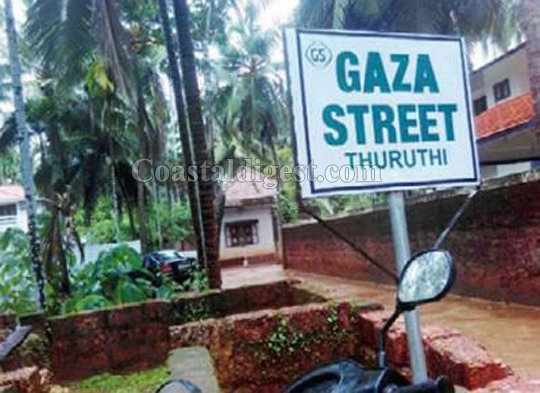Kasaragod, Jun 19: A street in Thuruthi ward of Kasaragod municipality that was recently named 'Gaza', a reference to a part of the Palestinian territory, has got intelligence agencies interested.

The agencies are looking at possible “radical” influence behind the naming, considering the locality's proximity to Padane from where the majority of the 21 youths from Kerala, who have gone missing since 2016 and are suspected to have joined the Islamic State terror outfit, hail.
The road adjacent to Thuruthi Juma Masjid was named 'Gaza' last month and was inaugurated by Kasaragod district panchayat president AGC Basheer. "I was not the person who was supposed to inaugurate the street as the area falls under the municipality's jurisdiction. But I had to step in at the last moment," Basheer said.
Though municipality funds were believed to have been used to concretise the street, municipal authorities claim they are clueless about the naming. Municipal chairperson Beefathima Ibrahim said she does not have any knowledge about such a street under her jurisdiction.
But local BJP leaders said, "There is a deliberate attempt to change the names of various areas in Kasaragod. When such matters come to the municipal council, there will be a debate and if the name is not of public acceptance, it will be rejected. For the same reason, many such names are not brought to the attention of the council," said Kasaragod municipality opposition leader P Ramesh.
Kasaragod district has been under the radar of central agencies like Intelligence Bureau and National Investigation Agency following the case of the missing youths.
"Kasaragod is a district where communal divisions are deepening along with inroads being made organisations like the IS. Though this particular incident has not come to our attention, the watchful eyes of central agencies capture even minor developments happening in the district for the above reason", a top police official said.






Comments
If RSS, BJP changes names all over India then no matter!!!!
If named isreal.... No issues
Add new comment